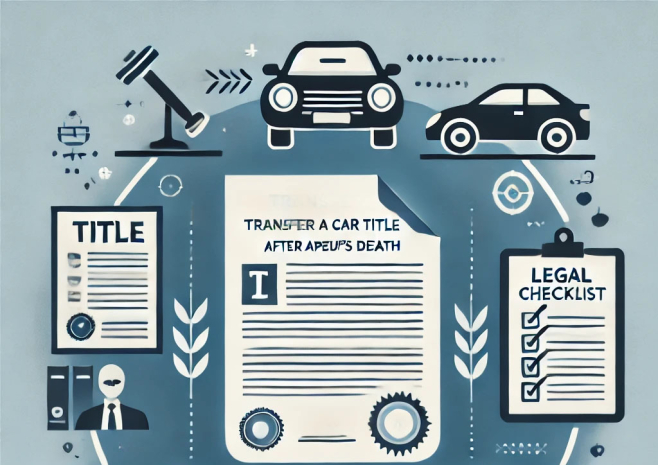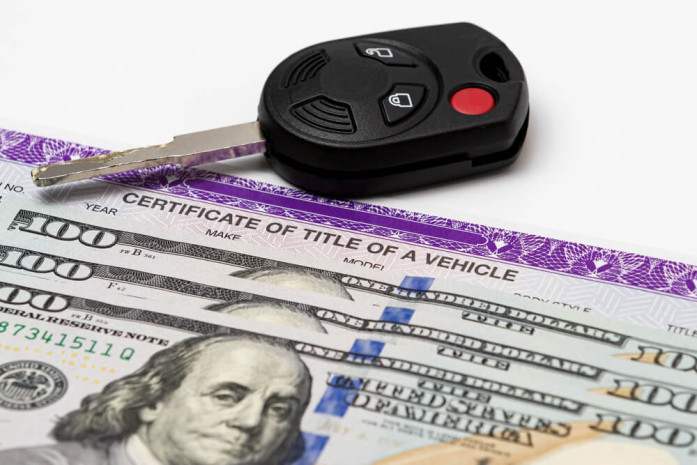Your car’s title is an important legal document tied to auto ownership. It can impact everything from your ability to sell or insure your vehicle to whether your car is considered safe to drive. For most car owners, a “clean” title is the goal, but the reality isn’t always so simple.
Behind the scenes, there’s a practice that allows some vehicles to have their histories erased or hidden — a process that can put unsuspecting buyers at risk. Interested? This article dives into what makes a clean title so important, and the risks involved when it is less than what it seems.
What Does Clean Title Mean?
A clean title means a vehicle hasn’t been given any labels (brands), like “salvage,” “rebuilt,” or “lemon” (relates to new cars with factory defects). There can also be an odometer rollback title brand, which points out the fact someone altered an odometer to show fewer miles. And you can meet junk title autos, which can only be sold for parts or scrap metal.
Insurance companies monitor this status to understand coverage risks. It matters to the states’ Departments of Motor Vehicles (DMVs), too — they check it whenever car registration or inspection is needed.
A quick remark: Buyers often confuse “clean” and “clear” car titles, but they can’t be used interchangeably. A clear status just implies that nobody else has the right to claim the auto. But this doesn’t tell you anything about the car’s condition and the legal owner.
You could end up with a “clear” vehicle but totally wrecked in an accident. That's why some sellers might try to trick buyers by saying "clear title" when their used car actually has some issues in its past, just no active liens on it.
Characteristics of a Clean Title Car
An automobile with a clean title has a more decent background than the one with a branded one. Here’s how it’s different from other vehicles:
- The car hasn’t sustained documented, severe damage. Most essential parts are still the ones straight from the factory;
- No insurance company has ever declared the auto had too extensive damage to be worth fixing (that's called a "total loss"). In other words, the vehicle’s repair costs weren’t more than its current value;
- The new car doesn’t have a lemon title — a manufacturer didn’t have to buy it back because it had too many unfixable issues.
Cars without a clean title typically sell for a lower price, which can attract buyers who want to save money. However, even if these vehicles are repaired and have proper documentation, they still carry more risk in terms of unexpected issues.
Differences Between Clean, Salvage, and Rebuilt Vehicle Titles
From above, you have already learned that besides clean titles, there are also branded ones. They’re earned when a car has had some significant damage or legal problems in the past. Salvage and rebuilt are two of the most common types of branded titles.
As we’ve stated, a salvage title means a vehicle has been deemed a total loss. Such cars can't be legally driven. They’re sold “as-is” and are often purchased for parts or restoration by specialists.
A rebuilt or reconstructed label is given to a vehicle that used to have a salvage title but has been repaired and has passed a thorough inspection. This certified mechanic inspection verifies that the car meets safety and roadworthiness criteria.
Why Is a Clean Status Important for a Car?
A clean title opens doors for your car and your wallet. Banks can offer more favorable loan terms, while insurance companies provide coverage at better rates. And when it's time to sell, you'll find more buyers willing to pay a premium.
You can be more confident that unforeseen problems, like electrical or safety issues, are less likely to be lurking under the hood. Vehicles with clean titles give you the peace of mind that there are likely no skeletons in the closet waiting to cause trouble down the road. But it’s still essential to verify everything and carry out certified car inspections.
How Do I Verify If a Vehicle Has a Clean Status?
Before you buy a vehicle or try to sell yours, it's critical to check its title branding. There are a few solid ways to see if a car does have a clean status.
Status Check Through the DMV
Your state’s Department of Motor Vehicles keeps all the official vehicle title records. You can ask them for a check using the car's vehicle identification number (VIN). The DMV’s records will tell you if the auto ever had a branded mark. A lot of DMVs now have online check options, so it’s easier than ever to find out the car's status.
If you’ve discovered your insurance company gave your auto a branded title, but you’re about to sell it, consider junk car buyers like JunkCarsUs. We offer excellent customer experience: fair prices for autos no matter what the status is and take care of all the paperwork and towing.
Utilization of Vehicle History Reports
Vehicle history reports give you a wider look at a car's backstory from across the US. Services like Carfax and AutoCheck track key details, such as branding marks, legal ownership changes, and reported accident history.
One critical benefit of these reports is their ability to uncover issues across state lines. This is especially important because some sellers attempt to hide a vehicle’s history by moving it to another state — a practice known as title washing (we’ll discuss this phenomenon later).
Sure, these reports will cost you a bit, but purchases without a fundamental analysis may cost much more.
Interpretation of Information on the Title Itself
The physical title of your car can tell a lot if you know what to look for. Check any marks, stamps, or handwritten notes that might hint at problems in the past. And pay special attention to sections labeled "brands," "damage," or "disclosure."
You can also check the title's color and format since different states can use specific colors or designs. For instance, Oklahoma uses a red color for salvage vehicles and orange for rebuilt titles. While in Texas, a blue title refers to a rebuilt vehicle.
Also, make sure the VIN on the ownership certificate matches the one on the vehicle.
Common Misconceptions About Clean Statuses
Some drivers believe that a clean mark means a vehicle has never been in an accident or that a branded ownership certificate can revert to clean status after repairs. Let’s clarify these misconceptions:
Clean Status Car vs. Accident-Free Vehicle
A clean status doesn't automatically mean a car has never been in a crash. Plenty of clean-title vehicles needed repairs at least once due to cosmetic damage. The big difference is that no insurance company has ever declared a total loss.
Can a Car with Repairs Still Have a Clean Label?
Even if everything was extensively repaired, even if it looks like a new car, unfortunately, this auto will always carry the rebuilt brand. Once it’s called a salvage vehicle, it can’t return to a clean title, even if upgraded. The best this auto can get is a rebuilt title.
What Is Title Washing?
Before you trust that a car has a clean status, you should be aware of title washing. It’s a kind of illegal process where people hide a car's history by wiping out its salvage or rebuilt mark. Criminals do this to sell significantly damaged autos for way more than they’re worth, while buyers get potentially dangerous vehicles with much lower resale value than they initially paid.
Common Methods of Car Title Washing
Title washing can happen when someone moves a car between states that have differing branding laws. For instance, they might take salvage title vehicles from one state and register them in another, where this auto in specific conditions may not yet count as a salvage car.
For instance, in Iowa, a vehicle gets branded with a salvage title when fixing it would cost more than 70% of what it was worth before. But in Texas, this threshold is 100%.
Another common trick is registering a flood-damaged car in a state that doesn't require flood damage disclosure. A buyer ends up with what seems like a clean title, even though the vehicle has some serious water damage that might cause issues down the line.
How to Protect Yourself from Title Washing
The main advice here is don't just look at the label when buying a used auto. Rather, rely on a vehicle history report that indicates the car's background across all states. If you see an automobile registered in many states in a short time, that's a big red flag.
You can also check the VIN with the National Motor Vehicle Title Information System (NMVTIS) to see its mark history all over the country. Inspecting the car yourself is also essential. Keep an eye out for any major repairs or damages that don’t match what’s on the title. Or entrust mechanic car inspection to professionals, especially if the price looks way too good to be true.




